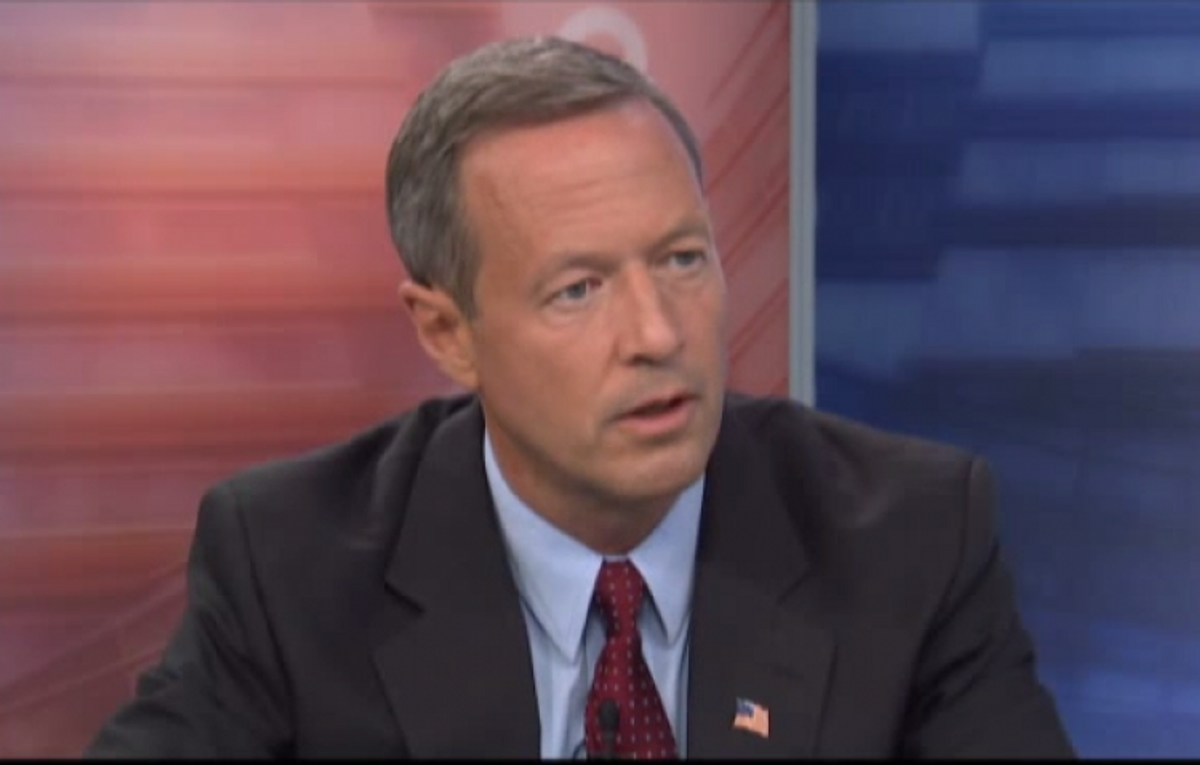Martin O'Malley has never been one to shirk a tough fight. In 1999, the ambitious Baltimore city councilman launched a mayoral bid confronting poll numbers that suggested the city's top job was a long shot. But the 36-year-old Irish Catholic worked assiduously to court support in the majority African American city, proceeding to emerge victorious with 53 percent of the vote in a seven-person Democratic primary field, before winning the general election with 90 percent support.
That come-from-behind victory is no doubt on O'Malley's mind as he contemplates entering the race for the Democratic Party's presidential nomination -- a contest currently dominated by Hillary Clinton. Unlike Clinton, biding her time before taking the plunge on a second White House bid, O'Malley, who just completed two terms as Maryland governor, is moving aggressively to woo Democratic primary voters. In the past week, his team has announced further trips to Iowa and New Hampshire, the two states that kick off the primary season, after O'Malley spent much of the past two years campaigning for Democratic candidates in the states.
Word of O'Malley's upcoming forays into the Hawkeye and Granite States comes as he has staked out bold positions on issues that resonate with the Democratic base. On Monday, O'Malley published an op-ed in the New York Times calling the Obama administration's decision to allow oil drilling off the East Coast a "big mistake"; the former governor has also come out forcefully against construction of the Keystone XL oil pipeline, on which Clinton has repeatedly refused to take a position. Similarly, O'Malley has outflanked Clinton on torture. In December, after the Senate Intelligence Committee released its report on the CIA's use of torture in its post-9/11 detention and interrogation program, O'Malley called for torturers to be criminally prosecuted; Clinton, while denouncing torture, opposes criminal accountability.
While those stances may appeal to progressive voters unsold on a Clinton candidacy, it's unlikely that O'Malley will run as an anti-Clinton. He endorsed Clinton's 2008 presidential campaign, and many observers suspect that he wants to preserve the option of serving as her vice president, should he seek the top job and come up short.
Instead, O'Malley would pitch himself as the progressive executive in a Democratic race in which executive experience is likely to be wanting, aside from Vermont Sen. Bernie Sanders' tenure as mayor of Burlington and Clinton's role helming the State Department.
"Governor O'Malley's strength is simple," O'Malley spokeswoman Lis Smith told Salon. "He's a progressive who has 15 years of executive experience and who's actually gotten results," she added, citing laws legalizing same-sex marriage, implementing the nation's first-ever living wage requirement, abolishing the death penalty, and granting in-state college tuition to unauthorized immigrants brought to the U.S. as minors.
Although that record will prove central to any O'Malley campaign, detractors point out that in Maryland's gubernatorial race last November, voters rejected Democratic Lt. Gov. Anthony Brown, O'Malley's hand-picked successor, electing Republican Larry Hogan in one of the biggest upsets of Election Night. For his part, O'Malley blames Brown's loss on a lackluster campaign, arguing that Brown focused too much on demonizing Hogan at the expense of touting the O'Malley administration's accomplishments. Hogan campaigned vigorously against the administration's tax increases, but O'Malley noted in a Washington Post interview last month that he scored a decisive re-election victory in 2010 after a campaign in which he defended the increases.
At any rate, O'Malley will face an uphill battle if he mounts a campaign. RealClearPolitics' polling average finds him registering just over one percent support in the Democratic field, some 59 percentage points behind Clinton. His odds are long, but O'Malley appears undaunted.

Shares